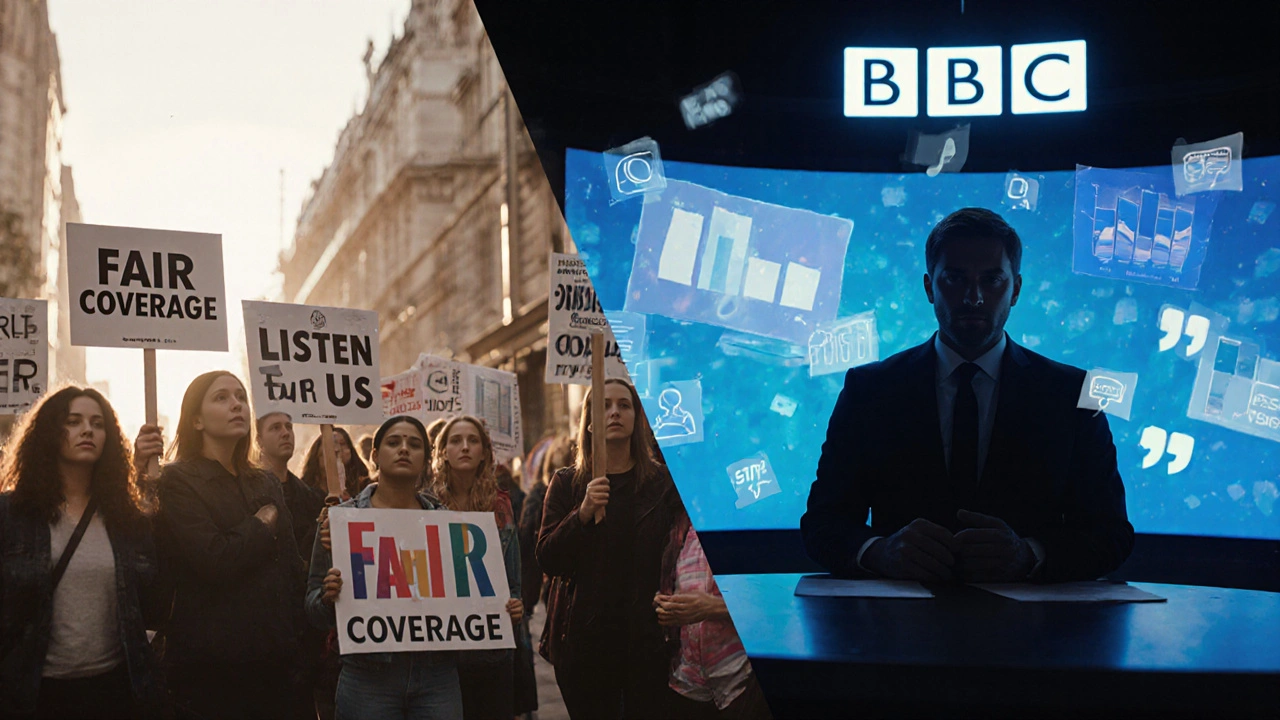BBC News bias: Is the UK's leading news source really impartial?
When people talk about BBC News, the UK's largest and most trusted public service broadcaster, known for its 24/7 news coverage and global reputation for accuracy. Also known as British Broadcasting Corporation News, it's the default source for millions of Britons who want facts without the shouting. But over the past decade, questions have grown louder: is BBC News really unbiased? Or does it lean—quietly, subtly, consistently—in one direction?
It’s not just conspiracy theorists asking. Independent media analysts, academics, and even former BBC staff have pointed to patterns in framing, word choice, and story selection. For example, when covering immigration, the BBC often uses terms like "migrant" instead of "refugee" or "asylum seeker," shaping how audiences perceive the issue. When reporting on protests, it gives more airtime to police statements than to demonstrators. And when covering economic policy, it tends to amplify government voices over independent economists. These aren’t accidents—they’re editorial choices. And they matter. The media bias, the tendency of news outlets to present information in a way that reflects a particular political or ideological slant. Also known as journalistic bias, it’s not always intentional, but it’s always present. The BBC’s size means its choices ripple across the entire UK news ecosystem. Other outlets follow its lead, not because they agree, but because it sets the tone.
Meanwhile, the BBC impartiality, the legal and ethical obligation under its Royal Charter to present news fairly, without favoring any side. Also known as balanced reporting, it’s the foundation of its public funding. Critics say that foundation is cracking. A 2023 study by the Media Reform Coalition found that BBC coverage of Brexit and the cost-of-living crisis consistently favored establishment perspectives—overlooking grassroots anger, alternative policy ideas, and systemic critiques. Even when the BBC reports facts correctly, the selection of which facts to highlight, and which to bury, tells a story. And that story isn’t always neutral.
What you’ll find below isn’t a list of complaints. It’s a collection of real stories, data-driven analyses, and public reactions that show how the BBC’s coverage shapes what Britain thinks it knows. You’ll see how it compares to other outlets like the Daily Mail, The Guardian, and the Daily Express. You’ll see how its reporting on homelessness, health, and politics aligns—or doesn’t—with what’s happening on the ground. This isn’t about whether the BBC is "good" or "bad." It’s about understanding how power works in news—and who gets to decide what’s important.
Is BBC News biased or unbiased? Here's what the data shows
BBC News is the most trusted news source in the UK, but claims of bias persist. Data shows it's among the most balanced outlets, though sourcing and framing can lean subtly. Here's what the evidence really says.
